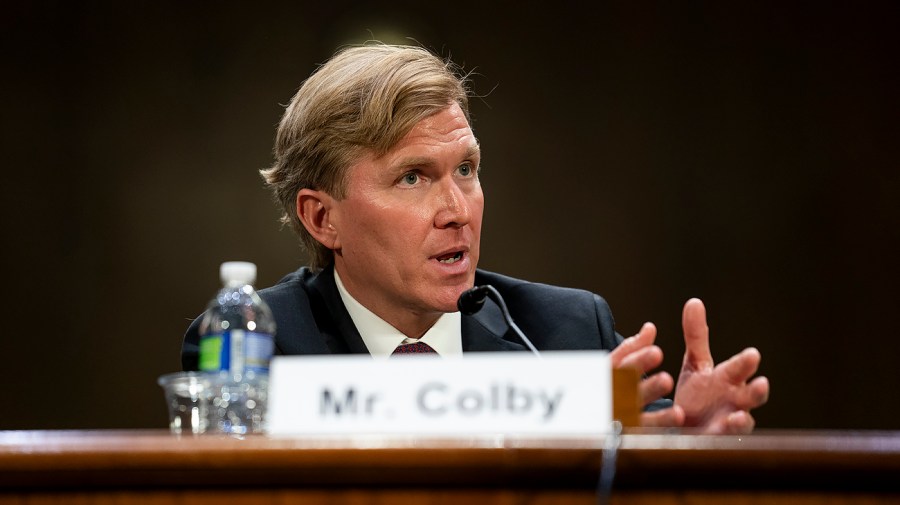
The Senate voted largely along party lines Monday to advance Elbridge Colby, President Trump’s controversial pick to serve as the Defense Department under secretary for policy, overcoming the private concerns of several Republican senators about Colby’s past statements.
The chamber voted 53-39 to limit debate on the nominee.
Notably, Sen. Mitch McConnell (R-Ky.), an outspoken advocate for projecting American military strength throughout the world and supporting NATO allies, voted for Colby, reflecting the general shift in sentiment in favor of Colby over recent weeks.
Several Democrats voted for the nominee, including Sen. Jack Reed (D-R.I.), the ranking member of the Senate Armed Services Committee, and Sens. Mark Kelly (D-Ariz.), Elissa Slotkin (D-Mich.), two lawmakers from swing states who also sit on the Armed Services panel.
Colby was passed out of Senate Armed Services Committee earlier this month in a closed-door vote.
The committee didn’t announce its vote tally, but it’s safe to assume that all Republicans on the panel voted for him, since they hold a narrow 14-13 majority on the panel and Democrats had expressed strong opposition to his nomination.
Colby received a boost from Vice President Vance, who introduced him at his nomination hearing last month, referring informally to his friend “Bridge.”
Republican senators grilled the nominee last month over his past statements questioning the strategic importance of projecting military power into Europe and the Middle East as well as his views about whether the U.S. is ready to fully commit to a military defense of Taiwan.
Sen. Tom Cotton (R-Ark.), a member of the Armed Services panel, challenged Colby over his past statement that if the United States had to choose between hoping to contain a nuclear Iran and preventing Iran with military force from getting nukes it should tolerate a nuclear Iran and try to contain it.
“That’s certainly not my view, but more important, it’s not President Trump’s policy,” Cotton warned.
Colby pledged to Cotton that he would provide the president with “credible and realistic” military options to stop Iran from obtaining nuclear arms.
Colby told Freddy Gray, the host of the Spectator’s American podcast, last year that the United States should reduce its support of Ukraine and Europe to focus on the threat posed by China to Taiwan.
The Conference of Presidents of Major American Jewish Organizations raised concerns about Colby’s view of the role of the American military in the Middle East and U.S. policy toward Iran in a Feb. 5 letter to Senate Armed Services Committee Roger Wicker (R-Miss.), and Reed, the panel’s ranking member.
Several Republican senators had “serious concerns” about Colby’s nomination, a source familiar with the vetting process told The Hill.
Colby, however, did well at his confirmation hearing, providing articulate and detailed answers to senators’ questions and nimbly GOP senators’ about their concerns.
When asked by Cotton why he had “seemed to soften” his views about the defense of Taiwan, Colby assured the senator that Taiwan is “very important” to the United States, even though he argued it’s “not an existential interest.”
He asserted that the “dramatic deterioration of the military balance” between China and the United States had merited a recalculation of the cost of defending the island and warned of a “lack of preparedness on our part” to fight China on a grand scale in its own backyard.
Colby also reassured Sen. Dan Sullivan (R-Alaska) that he views NATO as an important alliance, even though he believes it has to “adapt.”
At his hearing, Colby pointed out that West Germany was able to field 12 active divisions in 1988 while now it “can’t put a single division together.”
The Wall Street Journal in a March 3 editorial called Colby “a lightning rod in the fight between the GOP’s peace-through-strength wing and its retreat-from-the-world faction.”

